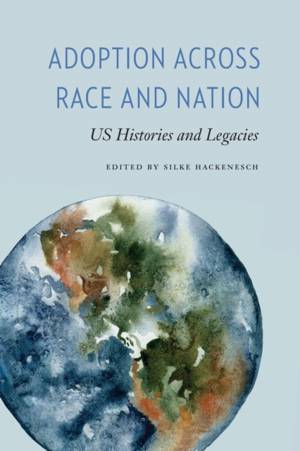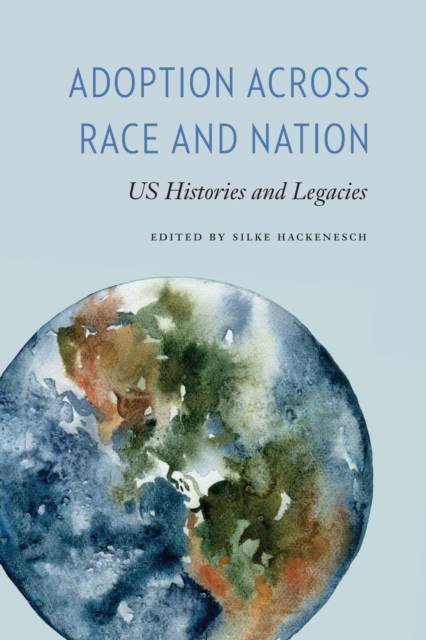
Je cadeautjes zeker op tijd in huis hebben voor de feestdagen? Kom langs in onze winkels en vind het perfecte geschenk!
- Afhalen na 1 uur in een winkel met voorraad
- Gratis thuislevering in België vanaf € 30
- Ruim aanbod met 7 miljoen producten
Je cadeautjes zeker op tijd in huis hebben voor de feestdagen? Kom langs in onze winkels en vind het perfecte geschenk!
- Afhalen na 1 uur in een winkel met voorraad
- Gratis thuislevering in België vanaf € 30
- Ruim aanbod met 7 miljoen producten
Zoeken
Adoption across Race and Nation
US Histories and Legacies
€ 59,45
+ 118 punten
Omschrijving
Legacies of (un)belonging have historical roots and resonate across quite different contexts of transracial and transnational adoption. In Adoption across Race and Nation activists, adoptees, and scholars across a range of fields-history, childhood studies, cultural anthropology, gender studies, social policy, and more-ask: What are the experiences of dual-heritage adoptees, and how have configurations of kinship, culture, and identity shaped their lives? How have transnationally and transracially adopted children approached their Americanness, their American whiteness, their American Blackness, their Asian Americanness? How do "border crises" turn "adoptable children" into revenue streams for countries, exposing the vulnerability of immigrant families of color? Offering case studies of post-World War II and Cold War adoptions of Black German and Black Korean children, Adoption across Race and Nation probes the intersections of race and nation as well as immigration and citizenship. It thus demonstrates that in the past as well as today, adoption, nation, and race continue to operate as relational categories with immediate effects on normative notions of family and kinship, belonging, the role of the state, and social welfare. Contributors: Silke Hackenesch, Laura Briggs, Pamela Anne Quiroz, Eleana J. Kim, Kim Park Nelson, Amy E. Traver, Kori A. Graves, Tracey Owens Patton, Rosemarie H. Peña, Peter Selman
Specificaties
Betrokkenen
- Uitgeverij:
Inhoud
- Aantal bladzijden:
- 242
- Taal:
- Engels
- Reeks:
Eigenschappen
- Productcode (EAN):
- 9780814258576
- Verschijningsdatum:
- 29/11/2022
- Uitvoering:
- Paperback
- Formaat:
- Trade paperback (VS)
- Afmetingen:
- 152 mm x 229 mm
- Gewicht:
- 358 g

Alleen bij Standaard Boekhandel
+ 118 punten op je klantenkaart van Standaard Boekhandel
Beoordelingen
We publiceren alleen reviews die voldoen aan de voorwaarden voor reviews. Bekijk onze voorwaarden voor reviews.








